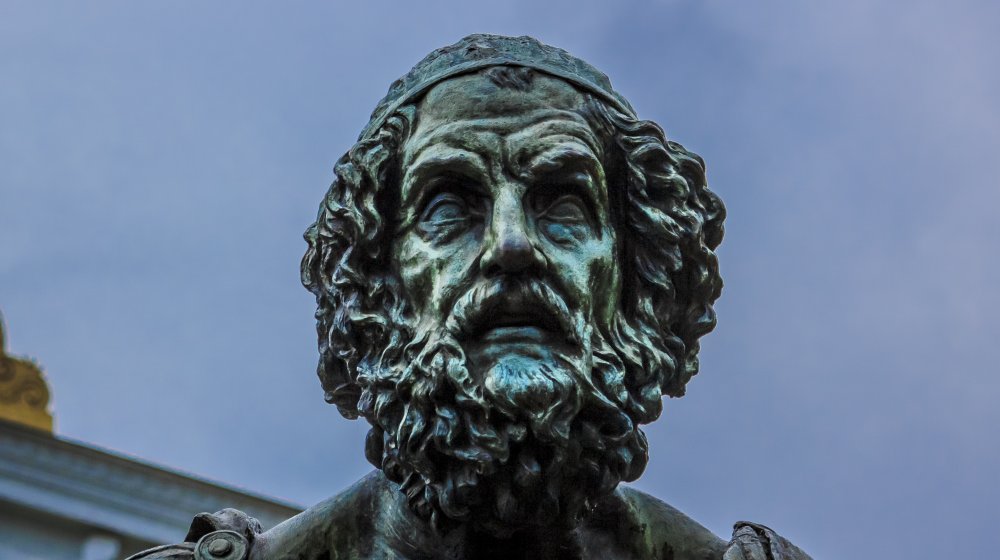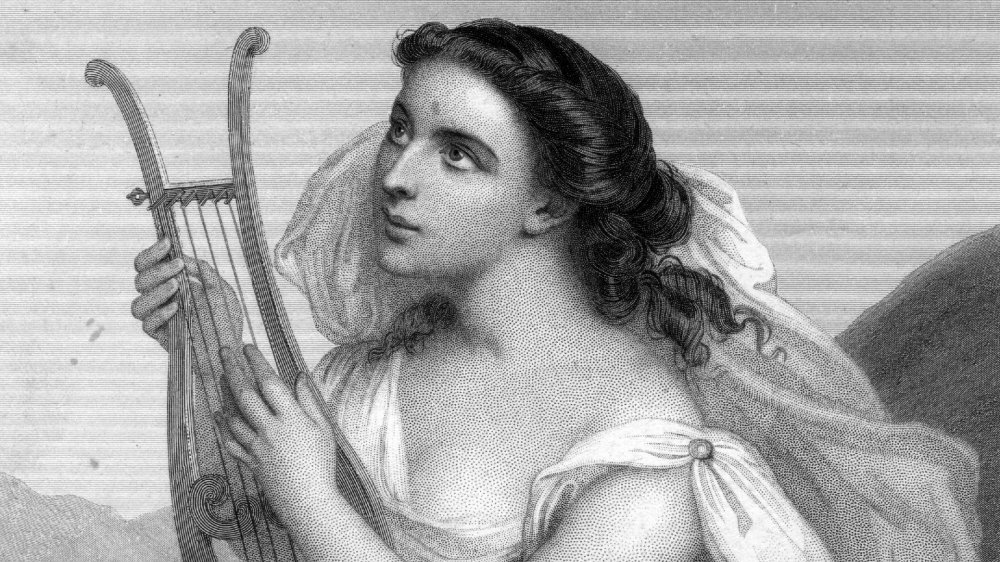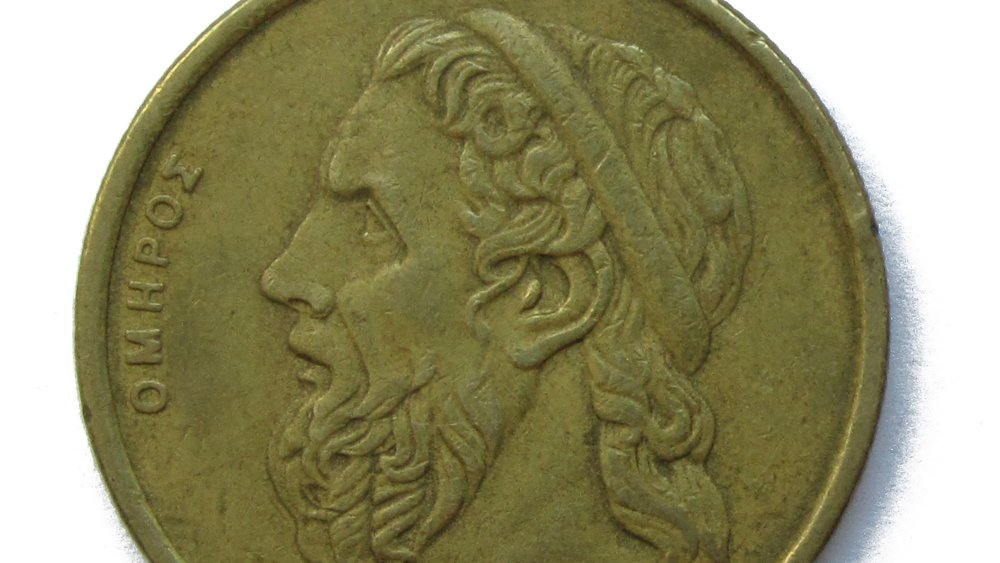Why Homer May Not Have Existed
Among the writers of Ancient Greece, few are more famous than Homer. Credited with writing The Iliad and The Odyssey, Homer rightfully holds a rarefied place in literary history. But, much like the fictional events in those epic poems, Homer might not have existed. Homer, explained Encyclopedia Britannica, probably lived around the 8th or 9th century BCE in Ion — what is now Turkey, leading some scholars to believe Homer was Turkish, especially since much of The Iliad and The Odyssey was written in the Ionian dialect. Not much else is known about Homer other than, if he existed, he might have been the blind man who lived on the island of Chios in Ion.
Around the 6th century BCE, bards would often perform in groups called "Homeridae" — "children of Homer," according to the British Museum. These groups went around telling the tale of the Trojan War far and wide. Greek poems were mainly in the oral tradition, meaning they were not written down but passed through spoken word or performances. We lack anything like a Homer First Edition to study. Many references to Homer came from other poets, like Sappho and Callinus, whose work used many of the same rhythms as Homer.
Further confounding the issue is that, as The Washington Post reported, references to the poems' ownership only appeared in 520 BCE — more than a century after the epic poems first started circulating around Greece.
Homer could have been a woman
One theory is that Homer was a woman, instead of a blind poet from Ion. SFGate points out that history often ignores female poets, and in ancient Greece, some of the best oral poets were women. Historians in the 19th Century, who were the first to seriously study ancient literature, were not exactly friendly to the idea that women may have written two of the best epics ever.
Both The Iliad and The Odyssey are very long epic poems — too long to perform during, say, a banquet. It's more likely the works were created in private. Men at that time would not take on a venture that didn't grant them payment or an audience. Besides, a woman at that time is far more used to working in private. A woman may also have more time to focus on writing down the two epics.
Whoever Homer might have been, the fact remains that the two most well-known stories from the time of the ancient Greeks were attributed to someone named Homer. If he existed, he truly deserves all this fame and glory. So who was Homer? Questionable authorship is nothing new in the literary world. Some people still debate if William Shakespeare wrote Romeo and Juliet or if he even existed. But unlike the Shakespeare debate, there are no written records to help solve the Homer mystery.
Was he more of an idea?
Adam Nicolson, an author of a book on Homer, told The Washington Post that Homer is a myth, more of an idea of how Greeks thought they should be. He explained that ancient Greeks may have wanted to attribute their oral traditions, particularly the retelling of the Trojan War and the trials and tribulations of Odysseus, to one individual, to make it seem their tradition stemmed from one great creator. Since many aspects of Homer's epics also appear in other cultures, and the fact that many of Homer's work don't even really take place in Greece, makes it plausible that the work wasn't written by one man but rather one shared across different lands.
The British Museum suggests another line of thought: What if Homer did exist, but didn't create these epic poems? It's possible that someone named Homer wrote down the many tales surrounding Troy and Odysseus and packaged them together for people, sort of how an editor of an anthology of poems would do these days.
It is possible that Homer, or the idea of Homer, would have existed later than people thought. The British Museum pointed out the poems are chronologically jumbled with some historical details from later times. And since oral traditions can sometimes evolve with the times, this could be a point toward Homer being younger. If, of course, he existed at all.


